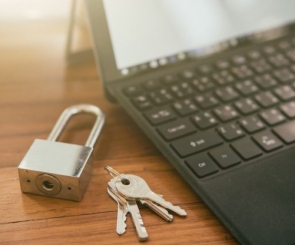Men and women have different financial regrets
CNNMoney (New York) First published January 12, 2018: 12:58 PM ET
Men and women aren’t too far apart on their financial expectations, but their biggest financial regrets diverge.
Men’s biggest money regret is not investing, while women’s biggest financial regret is not saving, according to a study from Go Banking Rates.
The survey found that nearly 15% of men said not investing was their top financial regret compared to about 9% of women. Men are also more likely than women to have a fear of losing money in the stock market.
Men also have a stronger regret of falling into debt and even putting money toward college.
Women’s top regret, according to the study, was not saving enough. And for good reason: a higher percentage of women than men have less than $1,000 in a savings account and 36% of women (versus 33% of men) have $0 saved for retirement.
When it comes to overspending on non-essentials, a quarter of women chose this as their top regret. Women may be more concerned about spending too much money each month because one of their biggest financial fears is living paycheck to paycheck.
Here are four ways to slay the anxieties.
Investing
One reason people are hesitant to invest is that they don’t know what they’re doing and are afraid of picking the wrong investments, or not having enough money to invest. Rubicoin is an investing app that takes many of the bad options off the table and leaves you to choose from 90 of the best performing stocks (as picked by investment pros) that you can opt to buy fractionally.
“We handpick 1% of listed businesses that have been proven over time to outperform the S&P,” says Emmet Savage, chief investor and co-founder of Rubicoin.
They explain that an awful lot of platforms leave new investors to it, left in a show room of shiny objects. “The value we bring is that we show you what’s best.”
Saving
Stash studies earning patterns and spending habits, then determines when a user has extra funds and moves it into a savings account.
If you’re having trouble getting traction with your savings, an automated app like this may be just what you need. While other automated or round-up apps move money into an investment account, Stash’s Smart Save option puts your money into a savings account.
The average Smart Save user is 27 years old with an average household income of less than $50,000, but the platform aims to make it seamless to save no matter your age or income.
“People really need help getting on the right foot,” says Ally Federbush, head of communications at Stash. “Investing is their priority, but saving is safer, until they build that emergency fund.”
Debt
Qoins, is similar to other round-up applications, but rather than putting the money toward investments or savings, it goes directly toward debt payments.
The service charges a fee of $1.99 per month, or about $24 a year.
You link the accounts that you use to purchase things and tell Qoins who to send your debt payments to. Then as you spend money, Qoins will round up your purchases and withdraw your spare change in $5 increments.
You may not think $5 here or there will make a difference, but over a year it can have a big impact. Qoins reports, on average, you can pay off an extra $600 per year.
Overspending
Clarity Money uses the power of artificial intelligence, machine learning and data science to help save your money from yourself. It learns your spending patterns and then finds ways for you to save, like finding and canceling wasteful subscriptions, getting a better credit card or lowering your bills.
First it combs through your recurring payments and subscriptions looking for things you no longer use or need to cancel, saving you money.
Then Clarity Money ensures that you stay on your regular budget by letting you know when you’re going overboard.
You’ll also get suggestions of credit cards that may lower your fees. That’s how Clarity Money makes money, but you’re not obligated to sign up for the cards and the app is free.








